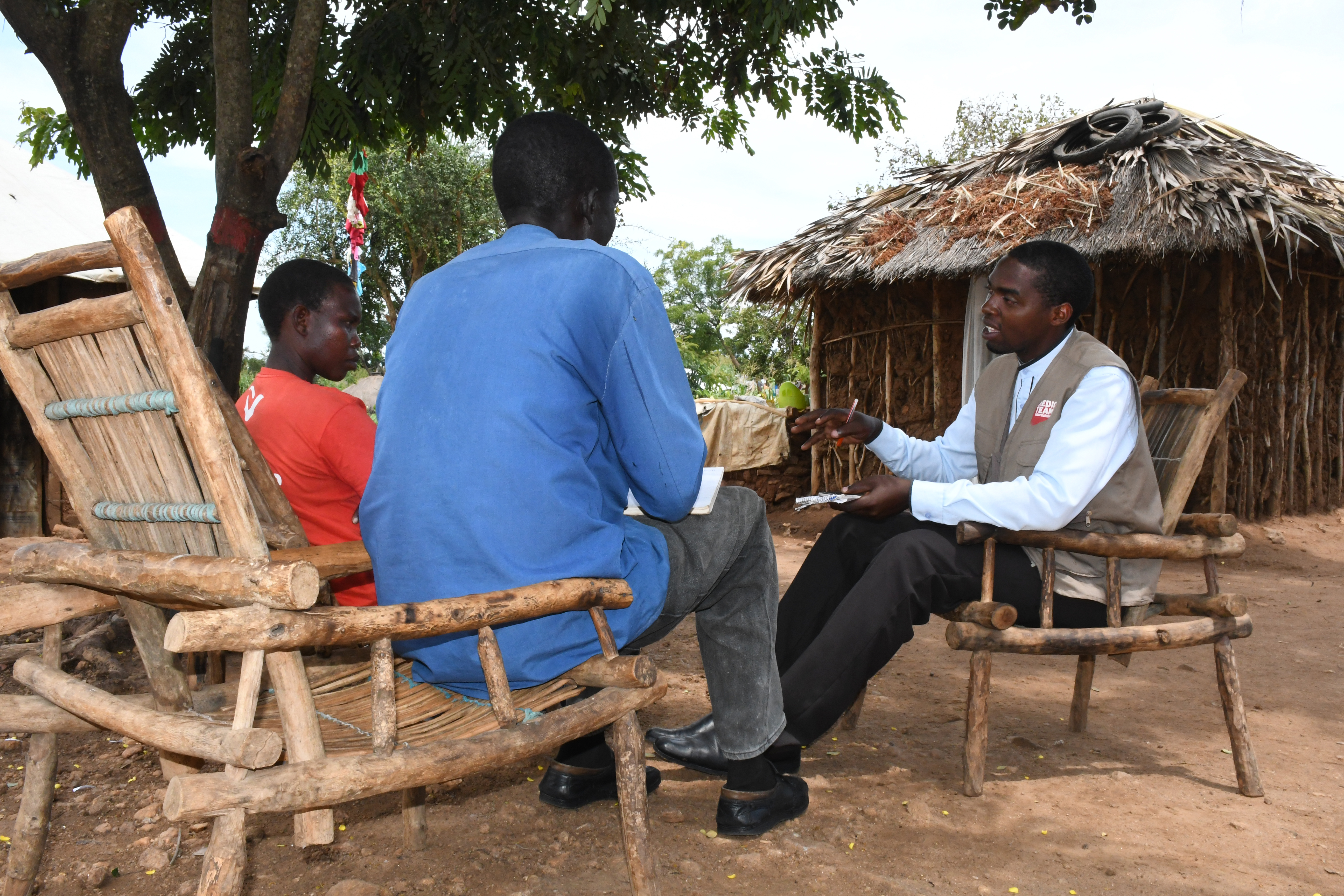Programme seeks to address all aspects of HIV infection in eastern Congo
Programme seeks to address all aspects of HIV infection in eastern Congo

DUNGU, Democratic Republic of the Congo, July 13 (UNHCR) - Josephine is just one of the more than 250,000 people who have been forced to flee their homes in this isolated and chaotic corner of the Democratic Republic of the Congo.
The reason for her flight - and that of many others - is one of the world's most ruthless armed militias, the Lord's Resistance Army (LRA) which is infamous for its attacks on civilians. Thirty-five year old Josephine arrived at the Li-nakofu site for internally displaced person (IDPs) following an LRA attack on her village. In April, the LRA attacked again, this time 500 metres from the settlement where people had sought sanctuary from the group's violence. During the assault, two of her daughters aged 9 and 11 were abducted as was a third girl aged 12. The girls have since then been released, but the LRA continue to hover near the site.
In this part of eastern Congo, not a day goes by without people being affected directly or hearing of militia attacks. But even after being forced from home, the displaced continue to suffer. The victims find themselves victimized yet again, targets of sexual violence, extortion and family dislocation. What little infrastructure is in place is often destroyed by the militias who regularly target health centres and schools. Less visible, but equally destructive, are the high levels of HIV infection.
Since 2009 UNHCR has been running an integrated HIV program aimed at addressing the needs of local populations and internally displaced people by improving the quality of the health care available.
The program works to prevent HIV infection by promoting condom use, safe blood transfusion techniques, the treatment of sexually transmitted diseases and the prevention of mother to child transmission. It also provides voluntary testing and counselling and post-exposure prophylaxis in case of sexual violence.
Dr. Mukuna Ghislain, HIV project coordinator for Oxfam Quebec, UNHCR's implementing partner, supports the program's integrated approach. "There is no point having a program that responds to HIV infection without offering a means of preventing it," he said. "To be successful one has to address a variety of issues."
There are more than 100,000 people living in the Dungu health zone, an area divided into 20 sections, three of which are inaccessible due to LRA activity. Dungu hospital is the only place where HIV testing can be done. Dr. Benjamin Manano, the hospital's director, says that 65 percent of those infected with HIV at the hospital are women.
Dr. Ghislain believes the program is already showing promising results. "Before this intervention," says Dr Ghislain, "there was limited care for persons with sexually transmitted infections. Now, not only does the health care exist, but technicians and health personal have been trained." He credits community participation and ownership of the program for its success. But the programme is not without its challenges.
Reaching beneficiaries, who are displaced and often hiding in very remote and insecure areas, is the greatest obstacle for UNHCR and its partners. The work is difficult and dangerous.
The price of a consultation is another issue. A visit to Dungu hospital costs one dollar, a consultation with a nurse is fifty cents. Even this tiny amount is beyond the means of many of the displaced.
There are currently more than 1.8 million internally displaced people in the Democratic Republic of the Congo. UNHCR continues to need funding for its programs to protect and assist some of the world's most vulnerable people.
By Celine Schmitt in Dungu, Democratic Republic of Congo









